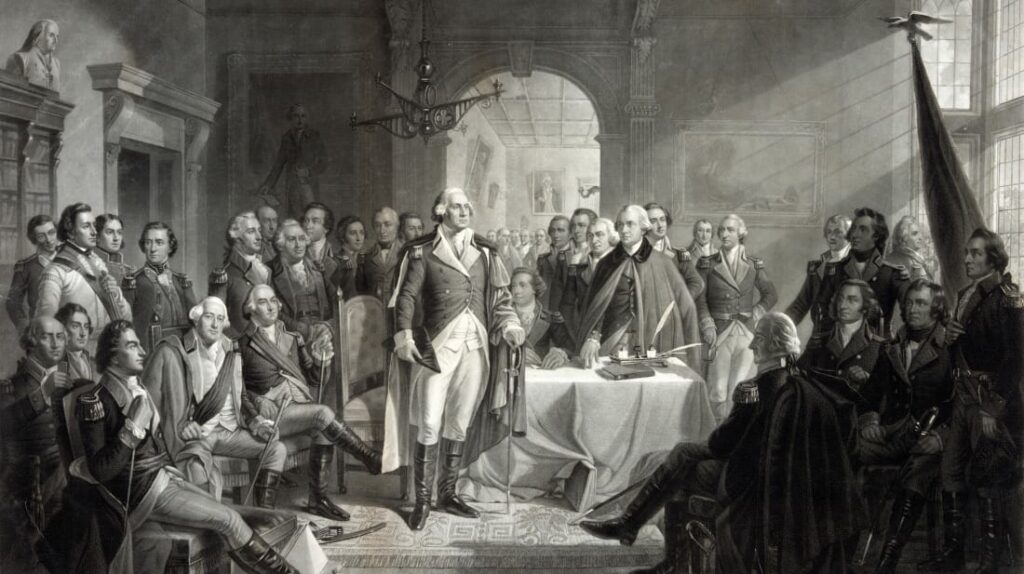Being an American in an era of divisiveness
November 8, 2021

Originally published in the Washington Examiner.
Americans who are disillusioned by the rancorous divisions that are convulsing our political system and fraying society shouldn’t be so shocked. America’s Founders anticipated these problems. But will we listen to them?
Our first president, George Washington, warned about geographic sectionalism and political factionalism in his Farewell Address , which was published originally as a letter to “friends and fellow-citizens” shortly before the 1796 presidential election: a bitter contest between John Adams and Thomas Jefferson, with name-calling, mud-slinging, and accusations of improprieties. In the midst of this turmoil, Washington exhorted his fellow citizens to remember that “the name of American, which belongs to you … must always exalt the just pride of patriotism, more than any appellation derived from local discriminations.”
Washington’s call to unity is still being issued today. Every year, a U.S. senator reads Washington’s Farewell Address on the anniversary of Washington’s birthday — a Senate tradition dating back to the 19th century. It’s a nice tradition, but does anyone still take Washington seriously?
Over the past few years, his statues have been vandalized and even torn down in places across the country. Districts have voted to remove his name from local schools. For many people, “Washington” is now a name to scorn, not heed.
Of course, Washington wasn’t perfect. He had a bad temper. He didn’t always make the right military decisions during the Revolutionary War. And he owned slaves. When he died, in fact, Washington held over 200 people in bondage. But looking at Washington only through the lens of his faults misses the truth — and greatness — of the man.
He may have been a slaveholder, but he rejected slavery. Yes, he held human beings in slavery and even insisted on tracking down runaways. He was not an abolitionist. But he inherited many of his slaves and stopped buying more when he realized that slavery contradicted the principles of equality and liberty for which the Americans fought in the Revolution. In his will, Washington freed the people he held in bondage upon the death of his wife, explaining that while he “earnestly wished” to free them while his wife was still alive, he could not do so because it would tear apart families who had intermarried.
To ensure that the emancipated people weren’t just legally free but could also govern themselves productively, Washington set up a trust fund to ensure that those who were too old or young to work would be “comfortably clothed and fed.” He required his heirs to make sure that orphaned slaves “be taught to read and write” and “be brought up to some useful occupation, agreeably to the Laws of the Commonwealth of Virginia.”
Washington’s stance against slavery was well known. In 1852, the great black abolitionist Frederick Douglass called on the Americans of his day to have the justice and courage of George Washington, who “could not die till he had broken the chains of his slaves.”
So why have so many Americans forgotten this George Washington? Too many people, especially young people, are getting their accounts of Washington from textbooks that are often boring or biased — or both. Instead of digging deep into the primary historical documents that tell the compelling story of Washington and our founding, students typically race through the textbook material without really learning it. Some might memorize the “what” of our history, but few know the more interesting “why.” No wonder they don’t care.
And when they do focus on statesmen such as Washington, too many are now being told that Washington and the other Founders were simply agents of racial or economic oppression, rather than people who fought for freedom. No wonder they don’t listen.
So, what story do they need to learn?
Not that Washington and the other Founders were perfect; we know they weren’t. They fought with each other and didn’t always heed Washington’s advice. But they all believed in the principles of our Declaration of Independence and Constitution — which Washington helped create — and saw them as “glorious liberty document[s],” as Frederick Douglass said. They knew that, whatever our differences, our founding principles make us “one people,” as the Declaration says.
In these days of partisan rancor and deep division, we need to recover common ground in those principles and our shared history of America’s ongoing struggle to live up to those principles. If we do, we’ll be heeding the wise advice of a man who devoted his life to making “the name of American” the “just pride” of us all.
Jeffrey Sikkenga is executive director of the Ashbrook Center at Ashland University in Ashland, Ohio, an independent educational center specializing in the study and teaching of U.S. history and government.

